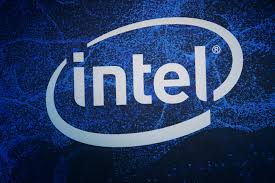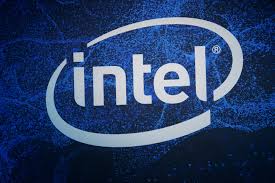
Intel now has officially moved away from the race for 5G chipsets because it is now seeking to divest its smartphone-modem business.
According to a report published in the Wall Street Journal, this business unit of Intel was considered for purchase by Apple Inc. and had initiated talks for that purpose last summer. However that negotiation came to an abrupt end after Apple reached an agreement of for settlement of contentious patent and royalty related legal dispute.
A multi-year chipset-supply deal has been signed between Apple and Qualcomm after the companies voluntarily ended their court case. That also meant that Intel was no more under consideration.
Currently, according to WSJ, its smartphone-modem business as a whole is now being sought to be offloaded by Intel as it is pivoting its position after the Qualcomm- Apple deal.
Reports have suggested that Apple is still in the race for purchasing the business even though there are a few other companies that have reportedly expressed interest. It has also been reported that those negotiations are being facilitated by Goldman Sachs on behalf of Intel. The WSJ report stated that a possible deal would ultimately be worth a few billion dollars even though the negotiations at a very early stage.
Before Qualcomm and Apple started their arduous law suit in 2017, Qualcomm was the sole supplier of chipset for Apple’s iPhones. The court case of the companies was over payments for patent related to royalty and violation of contracts. In that period, Intel became the supplier of modems for Apple’s smartphones.
In recent months, there were rumours that Apple was not confident about the ability of Intel to be able to supply 5G modems for its smartphones by its goal of 2020. Those rumours have been denied by Apple. Meanwhile, Qualcomm is already rolling out 5G capable modems.
"We are very excited about the opportunity in 5G and the 'cloudification' of the network, but in the smartphone modem business it has become apparent that there is no clear path to profitability and positive returns," Intel CEO Bob Swan said on April 16. That was the day that the companies had settled their legal cases and announced the renewal of their chipset deal.
According to WSJ, Intel is making incurring losses of about $1 billion every year because of its modem business. If a deal goes through form the business, it would potentially also include staff, patents and modem designs across multiple technology generations.
Meanwhile, there were also reports that negotiations with Intel had been held by Apple for a possible purchase of parts of Intel's smartphone modem chip business.
Intel has also said that 4G LTE chips would be continued to be supplied by it so that it can meet up with its already established orders. That means that Intel chips rather than Qualcomm chips would be continued to be used in Apple's 2019 iPhone lineup. It is too late in the design cycle for Apple to swap chips for this year's upcoming devices.
(Source:www.engadget.com & www.macrumors.com)
According to a report published in the Wall Street Journal, this business unit of Intel was considered for purchase by Apple Inc. and had initiated talks for that purpose last summer. However that negotiation came to an abrupt end after Apple reached an agreement of for settlement of contentious patent and royalty related legal dispute.
A multi-year chipset-supply deal has been signed between Apple and Qualcomm after the companies voluntarily ended their court case. That also meant that Intel was no more under consideration.
Currently, according to WSJ, its smartphone-modem business as a whole is now being sought to be offloaded by Intel as it is pivoting its position after the Qualcomm- Apple deal.
Reports have suggested that Apple is still in the race for purchasing the business even though there are a few other companies that have reportedly expressed interest. It has also been reported that those negotiations are being facilitated by Goldman Sachs on behalf of Intel. The WSJ report stated that a possible deal would ultimately be worth a few billion dollars even though the negotiations at a very early stage.
Before Qualcomm and Apple started their arduous law suit in 2017, Qualcomm was the sole supplier of chipset for Apple’s iPhones. The court case of the companies was over payments for patent related to royalty and violation of contracts. In that period, Intel became the supplier of modems for Apple’s smartphones.
In recent months, there were rumours that Apple was not confident about the ability of Intel to be able to supply 5G modems for its smartphones by its goal of 2020. Those rumours have been denied by Apple. Meanwhile, Qualcomm is already rolling out 5G capable modems.
"We are very excited about the opportunity in 5G and the 'cloudification' of the network, but in the smartphone modem business it has become apparent that there is no clear path to profitability and positive returns," Intel CEO Bob Swan said on April 16. That was the day that the companies had settled their legal cases and announced the renewal of their chipset deal.
According to WSJ, Intel is making incurring losses of about $1 billion every year because of its modem business. If a deal goes through form the business, it would potentially also include staff, patents and modem designs across multiple technology generations.
Meanwhile, there were also reports that negotiations with Intel had been held by Apple for a possible purchase of parts of Intel's smartphone modem chip business.
Intel has also said that 4G LTE chips would be continued to be supplied by it so that it can meet up with its already established orders. That means that Intel chips rather than Qualcomm chips would be continued to be used in Apple's 2019 iPhone lineup. It is too late in the design cycle for Apple to swap chips for this year's upcoming devices.
(Source:www.engadget.com & www.macrumors.com)














